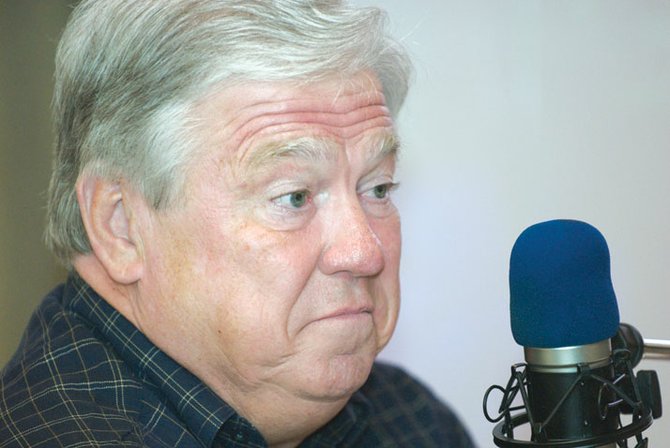Gov. Haley Barbour and Secretary of State Delbert Hosemann have agreed to comply with the state Supreme Court's interpretation of the general election ballot order. Photo by Roy Adkins
The poll, paid for by Campaign For Tobacco Free Kids and conducted by Republican pollsters Public Opinion Strategies, of California, found that 80 percent of those polled preferred the tobacco tax, while 8 percent preferred the hospital tax. The issue grows more grave this week as Barbour threatens to cut Medicaid by $375 million if the House does not approve his hospital tax in another special session.
Roy Mitchell, program director of the Mississippi Health Advocacy Program, said the poll showed Barbour was out of touch with the vast majority of Mississippians. "The public's not buying this whole Medicaid cut scenario, The only person Barbour is fooling is himself."
Rep. John Mayo, D-Clarksdale, smirked at the Mississippi Hospital Association's refusal to submit a report to Barbour of possible Medicaid cuts to hospitals last week. "Apparently the Hospital Association accepted the slap to the face when they accepted the 'either/or option,' but refused to turn the other cheek when asked what cuts should be made," Mayo wrote in an e-mail.
"Kind of like the innocent but condemned prisoner, bound and tied to the post and about to be shot. The executioner whispers in his ear, 'Where would you like the bullet?' To which the condemned replies, 'Oh, please, just shoot me.Ҕ
Speaker Billy McCoy expressed frustration with Barbour's refusal to broker a tobacco tax/hospital tax deal, but issued a letter expressing his hope that "House and Senate leaders will show statesmanship" regarding a plan to fill a Medicaid shortfall.
McCoy said he "saw no evidence" that Barbour "was willing to budge" from his threat to cut the Medicaid program by up to $375 million in July, but said he was "optimistic" that House and Senate leaders would work to hash out an agreement.
The House wants to fill the hole with a tax increase on tobacco and alcohol, while Barboura former tobacco lobbyistwants to initiate a $168 daily tax on hospital beds that McCoy argues would be transferred to the patients.
"We don't want an exorbitant tax on the sick to cause monthly insurance premiums to skyrocket on working families, businesses and governments who pay for their employees' health insurance," Barbour said.
McCoy said the House would be willing to consider a more modest tobacco tax increase in exchange for a reduced hospital tax, but Barbour is more willing to cut Medicaid services than barter. If nobody overcomes the stalemate McCoy said he'll likely send House members back home when they show up to continue the special session next week.
Barbour may follow through with his proposed cuts, though he risks a drop in public approval if he does. The last time the governor seriously impacted Medicaid was during his 2004 endeavor to remove Medicaid coverage for 65,000 Poverty Level Aged and Disabled beneficiaries. Barbour's approval ratings tanked that year, and did not significantly increase until Hurricane Katrina struck in 2005.
Barbour is a lame duck this term, however, and public opinion will only affect Republicans supporting his face-off against the House.



Comments
Use the comment form below to begin a discussion about this content.
comments powered by Disqus